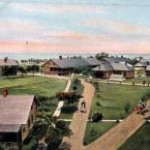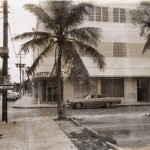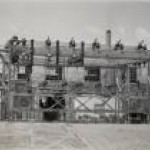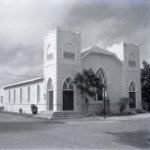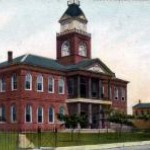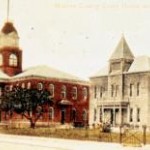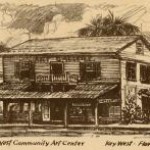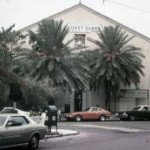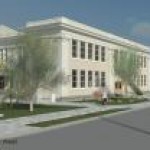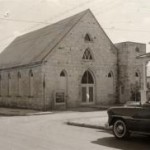Come experience 120 Historic Markers in the Largest Historic District of Frame Buildings in the United States. See photos and listen to the history and stories these buildings have to tell. Take a self-guided tour and discover a little piece of paradise.
Check Out Our YouTube Videos
Peary Court
This is the former location of the U.S. Army Barracks. The men stationed on this 24 acre property played a vital role in shaping Key West's history. Their service spans the three Seminole Wars, the Civil War, the Spanish American War, World War I, and World War II. The soldiers' presence influenced Key West economically and supported the island for more than 100 years. The Barracks were turned over to the U.S. Navy in 1947 and renamed for famed explorer Robert Peary.
The Masonic Temple
Dade Lodge #14 was built by esteemed Miami architect, Henry Hohauser for a local order of Masons. The architectural style of the building is Streamline Moderne. The new look embraced simple lines and aerodynamic curves in reaction to Victorian building ornamentation that was the predominant building style for decades. The use of concrete construction and large expanses of glass stood in stark contrast to the wooden structures in what is now the Historic District
The Old Power Plant
These brick structures were built as a gas plant and were the first large scale source of power in Key West. The plant would burn coal, collect the vapors, and convert them into a gas for lighting. The gas, however, was smoky and proved to be an inefficient lighting source. In 1890, John Jay Philbrick transformed the facility to a steam powered electric plant. He renamed the power plant the Key West Gas and Electric Company and ceased producing coal gas within a few years.
Bethel AME Church
Research in progress. Visit us again to view our ever growing history and heritage of Key West.
Monroe County Courthouse
Research in progress. Visit us again to view our ever growing history and heritage of Key West.
Civil War Jail
Research in progress. Visit us again to view our ever growing history and heritage of Key West.
The Key West Art Center
The City of Key West declared bankruptcy in 1934. The Works Progress Administration (WPA) and Florida's Federal Emergency Relief Administration (FERA) were tasked with restructuring the local economy from a dying industry town into a vacation paradise. In 1937, this building became the first gallery to exhibit artwork to the public in Key West and promote a community of artists. Reproductions of art depicting the Keys was used to enticed visitors and launch a tourism based economy for the struggling city.
Coast Guard Headquarters
Building # 1 is the oldest brick structure in Key West built by the U.S. Navy as a Coal Depot and Storehouse. It coordinated refueling steamships and was a vital source of coal from 1856 – 1900. During the Civil War, the Union’s West Indies Blockade Squadron was headquartered here. The blockade shortened the war and saved many lives on both sides of the conflict. In 1932 the 7th Lighthouse District occupied the structure. In 1939, the building became the U.S .Coast Guard Headquarters.
New City Hall
Research in progress. Visit us again to view our ever growing history and heritage of Key West.
Saint Stephen AME Zion Church
This place of worship was named for Saint Stephen who is recognized as the first Christian martyr. He was stoned to death for his views on poverty and the role of the early church. The structure is built from locally quarried lime stone and coral rock. The exposed open beam and plank roof structure is still evident when viewed from the interior of the building. The church closed in 1940 and has gone through a series of other uses since then.
